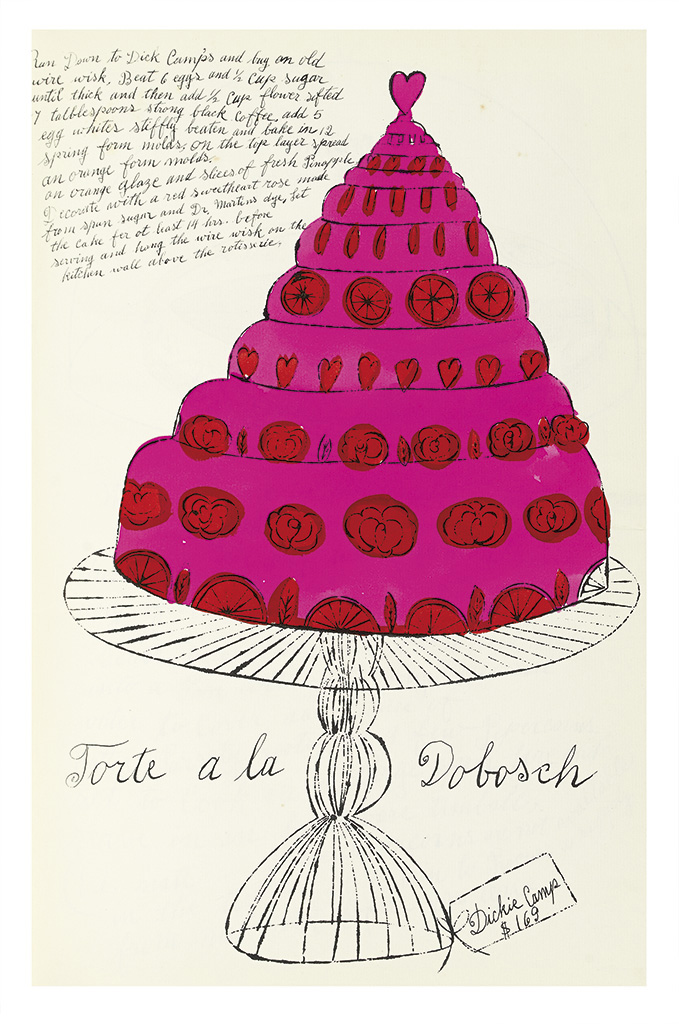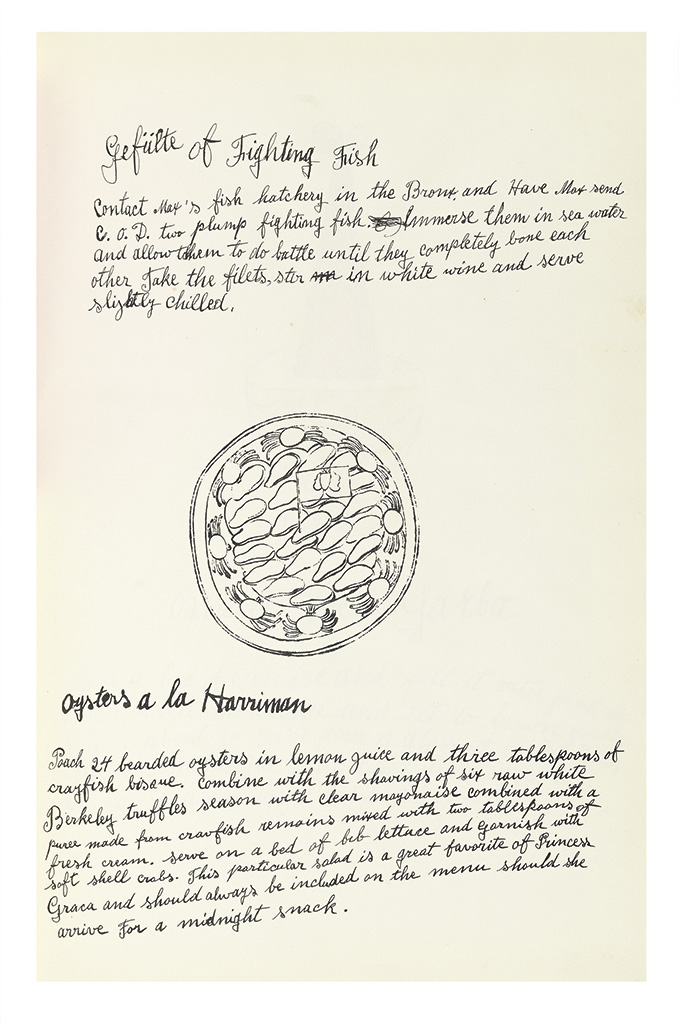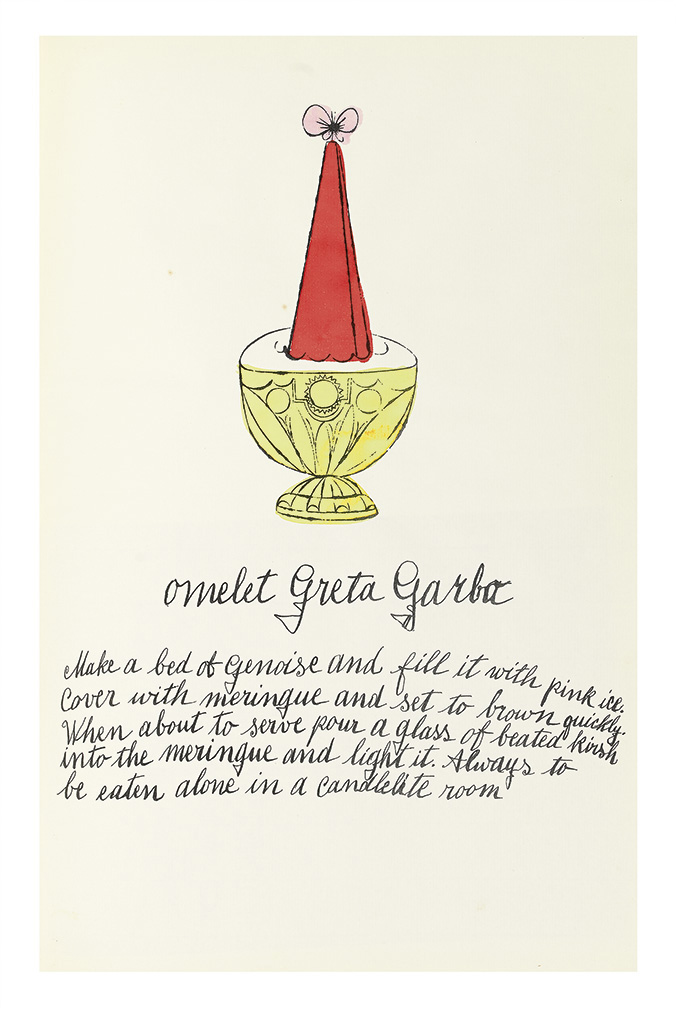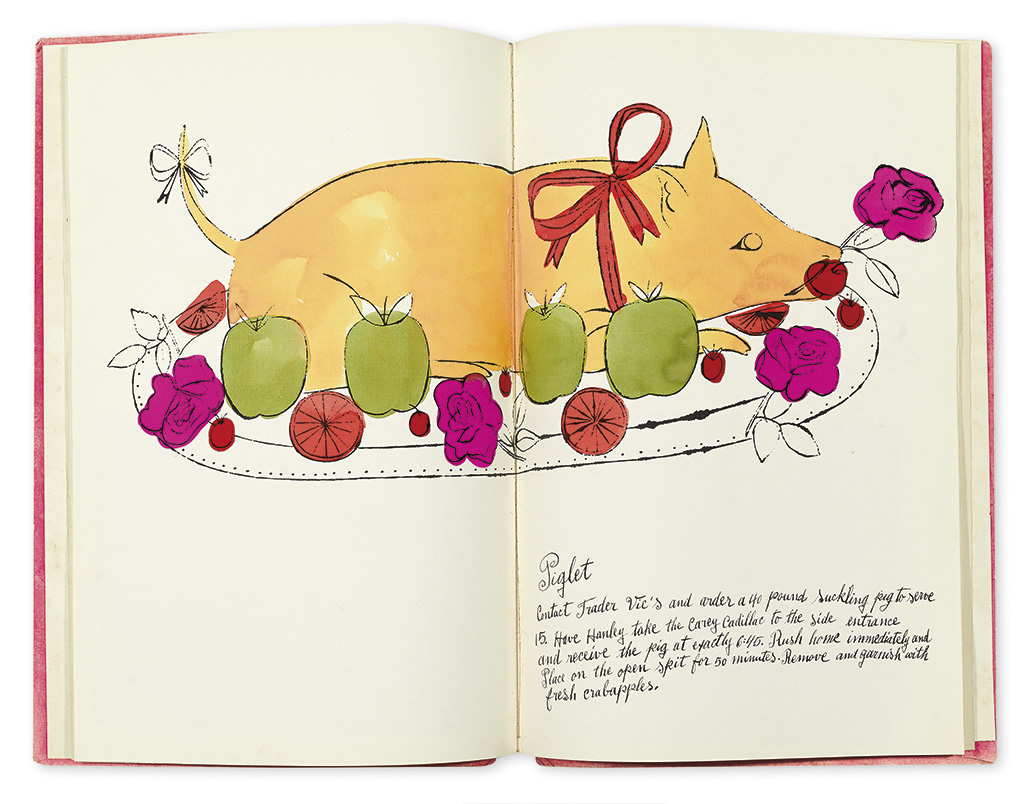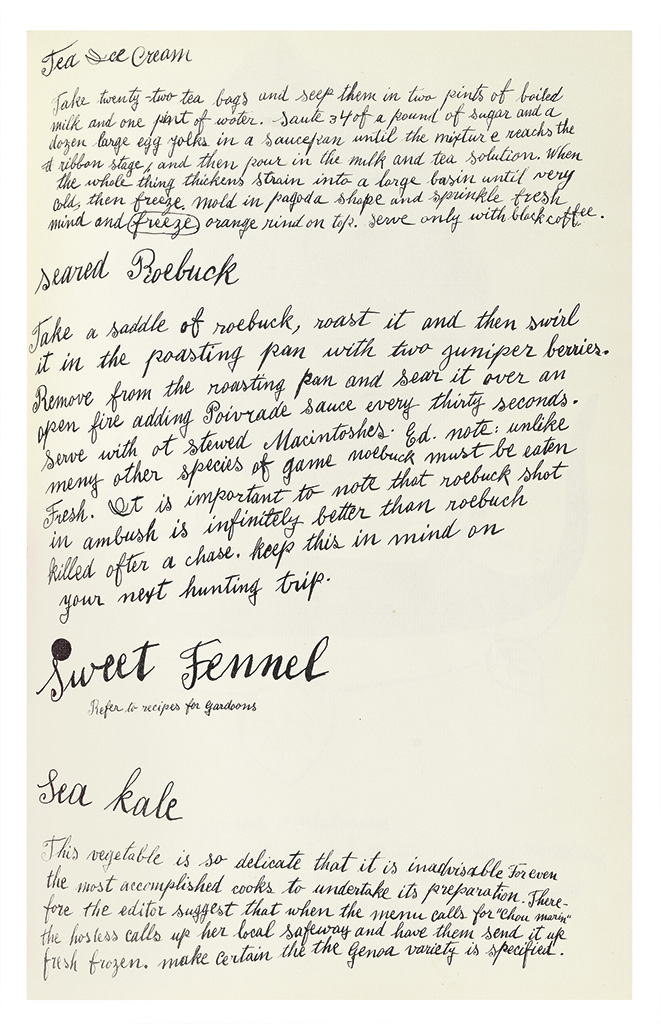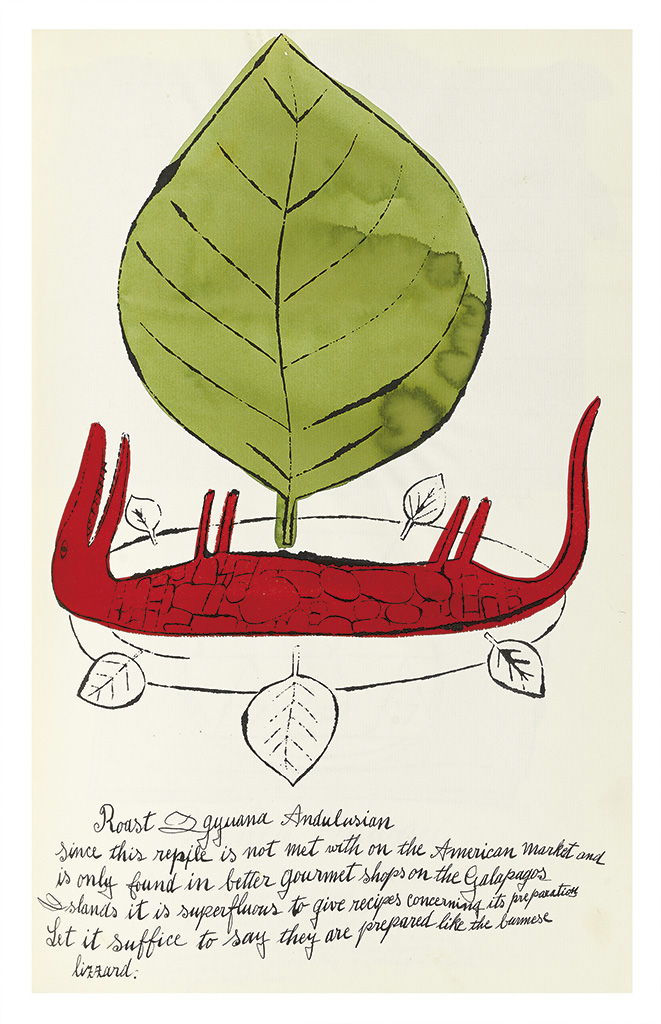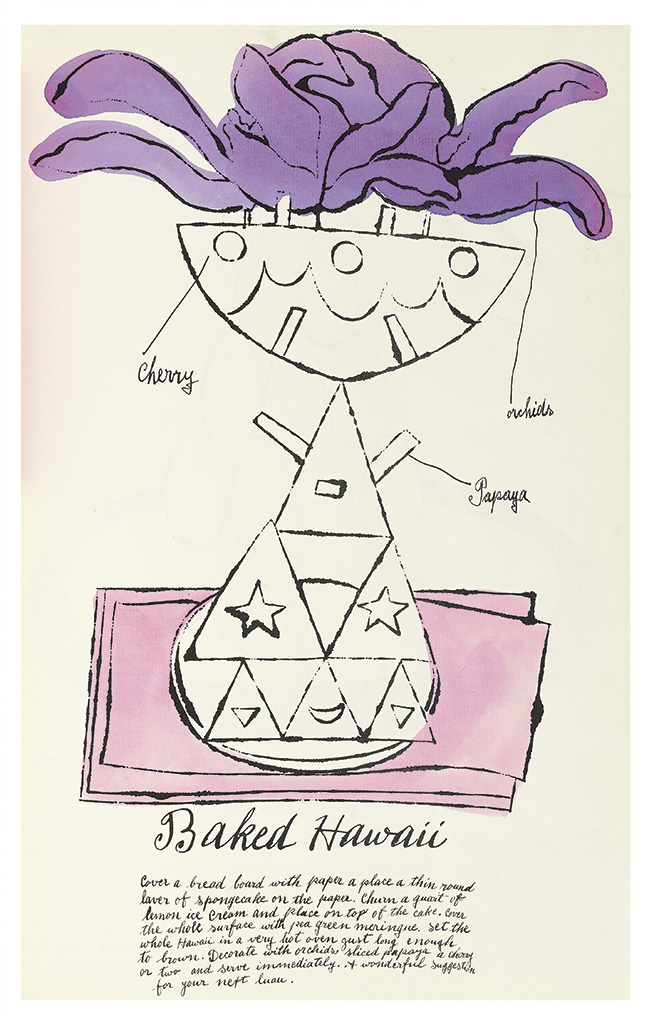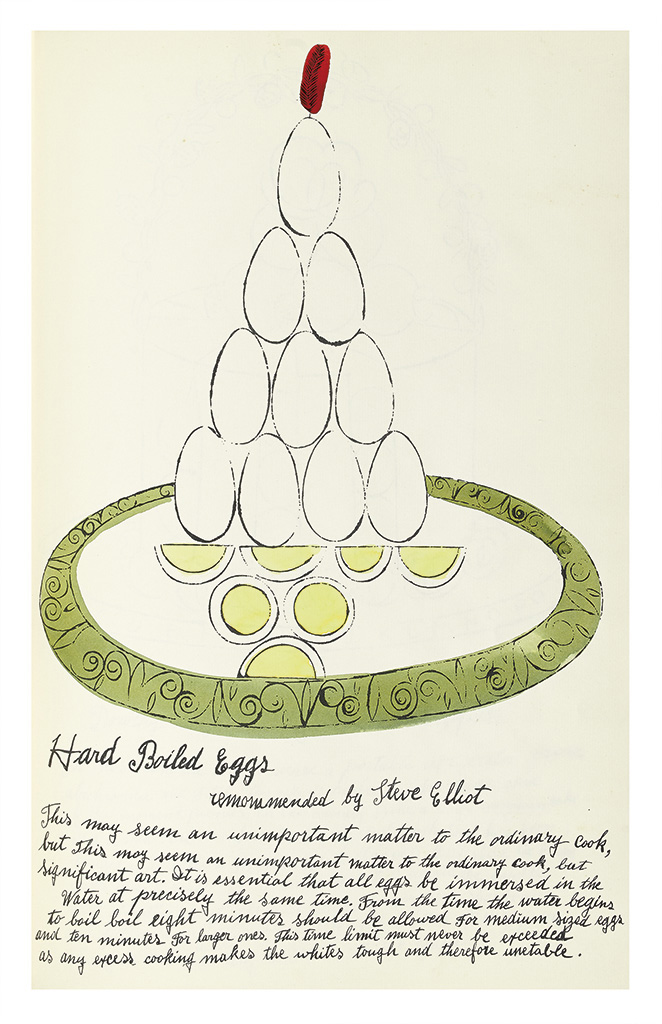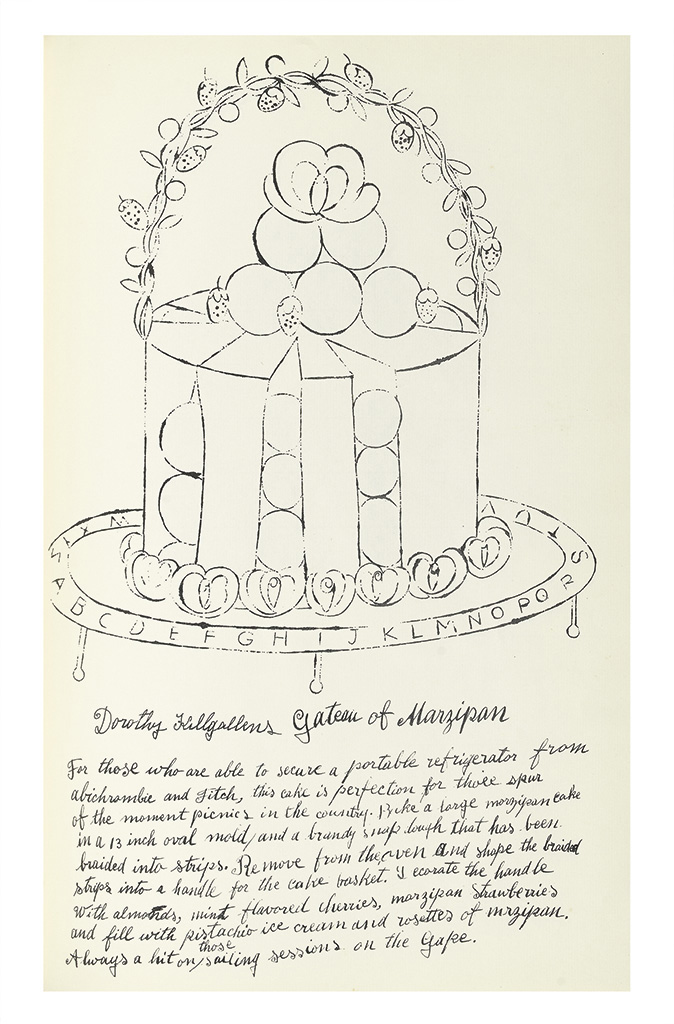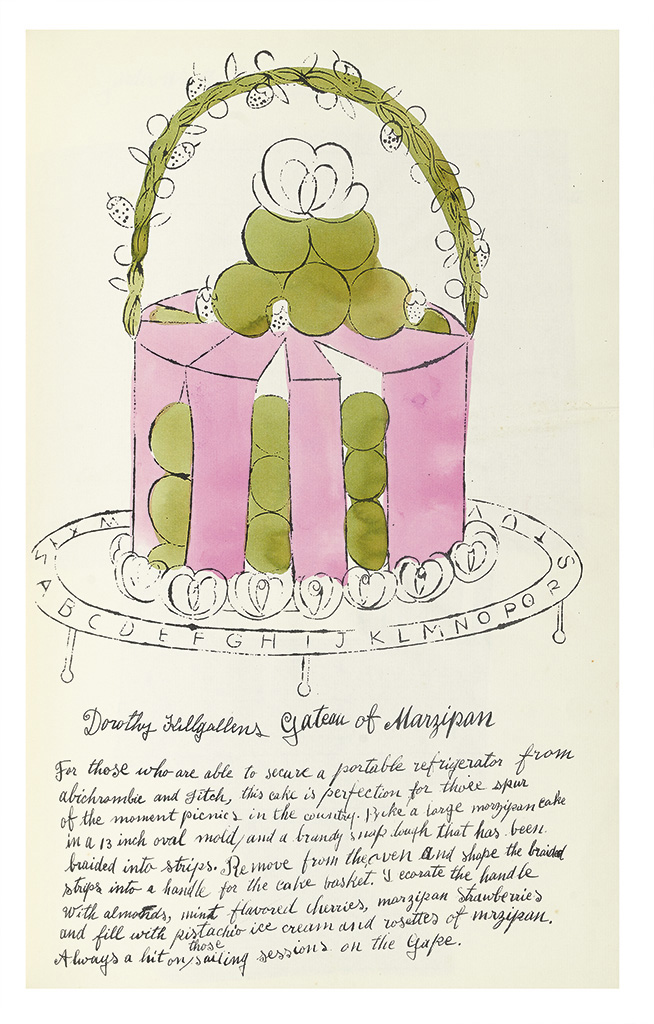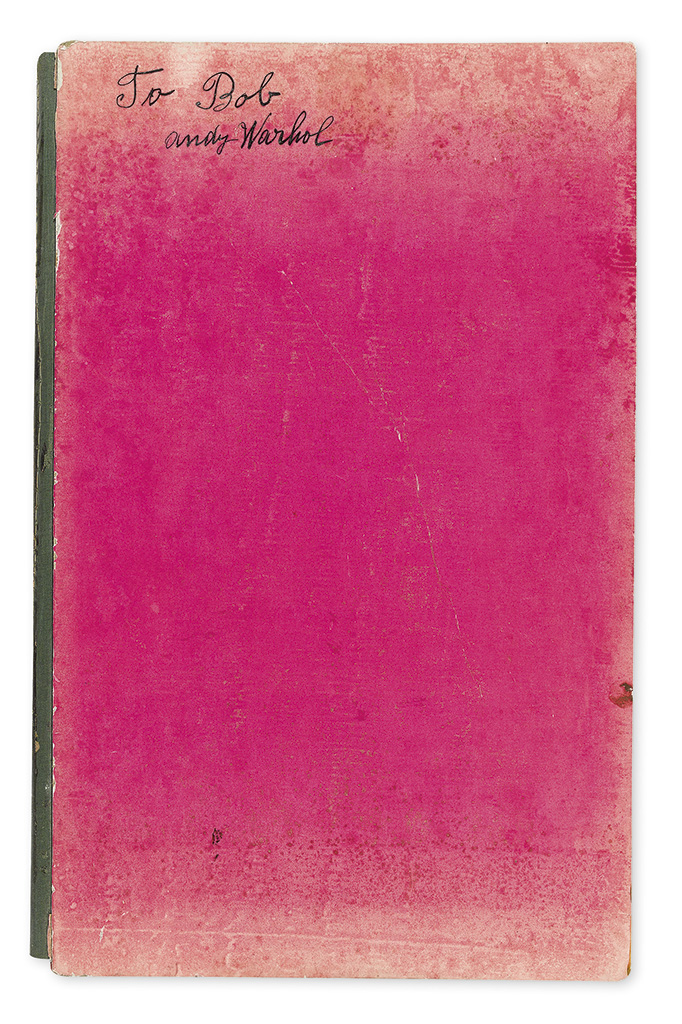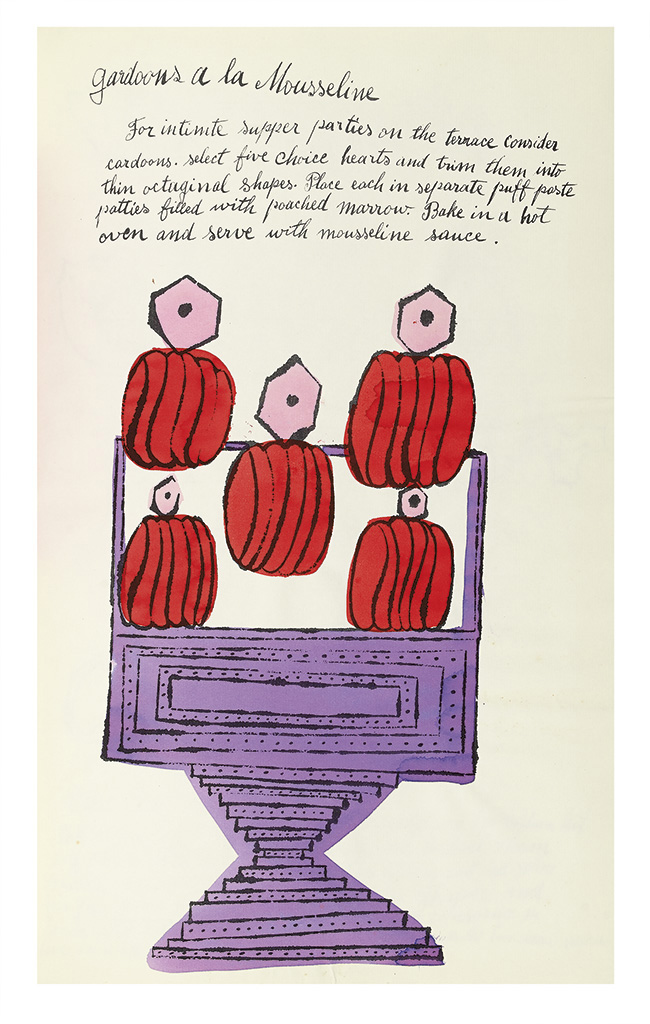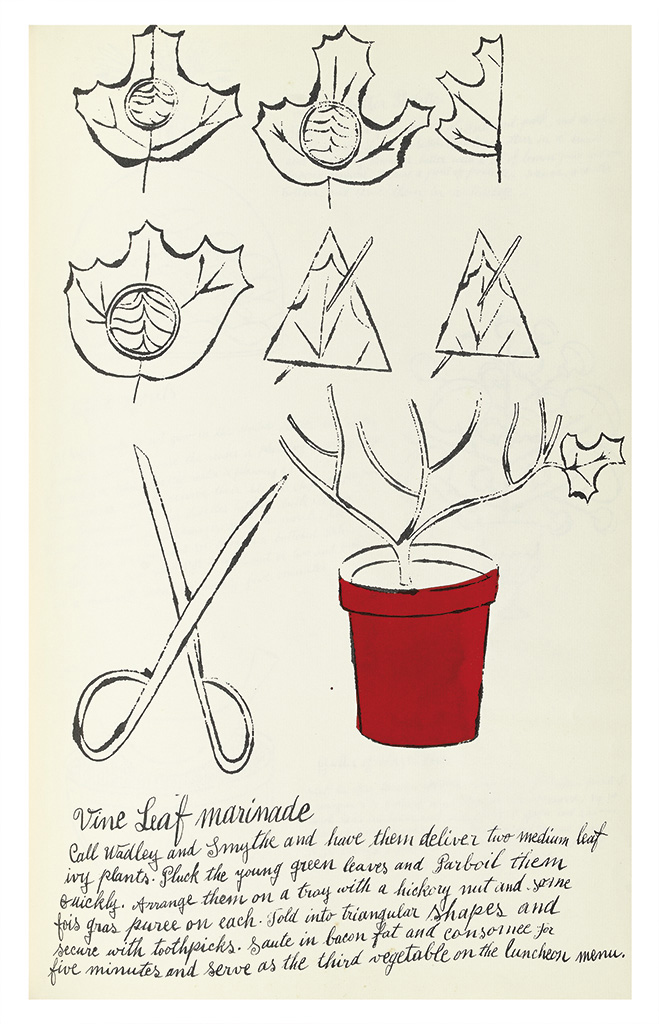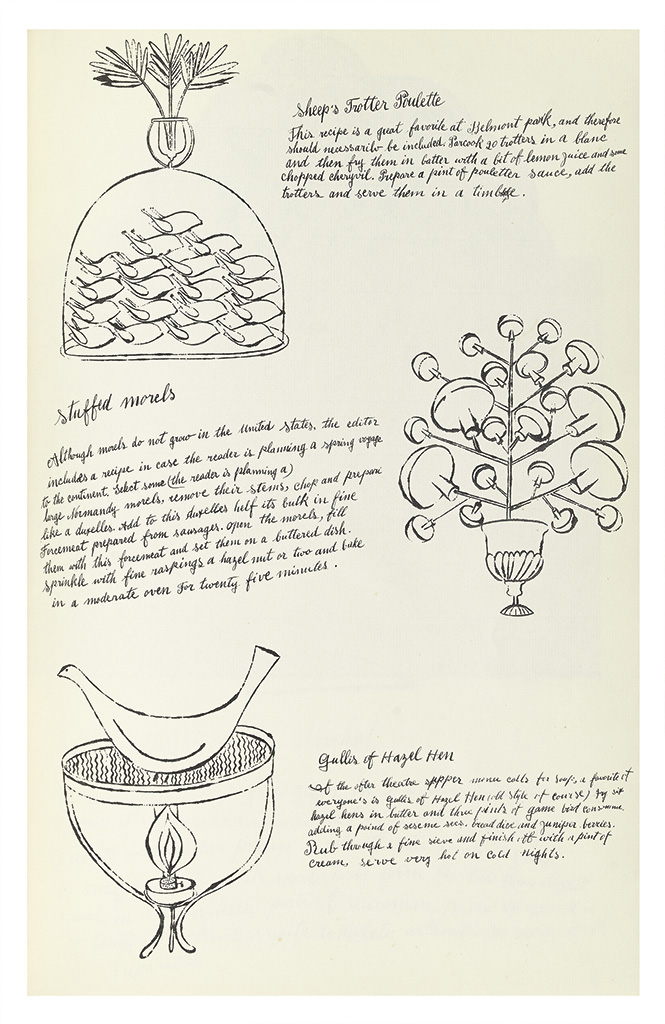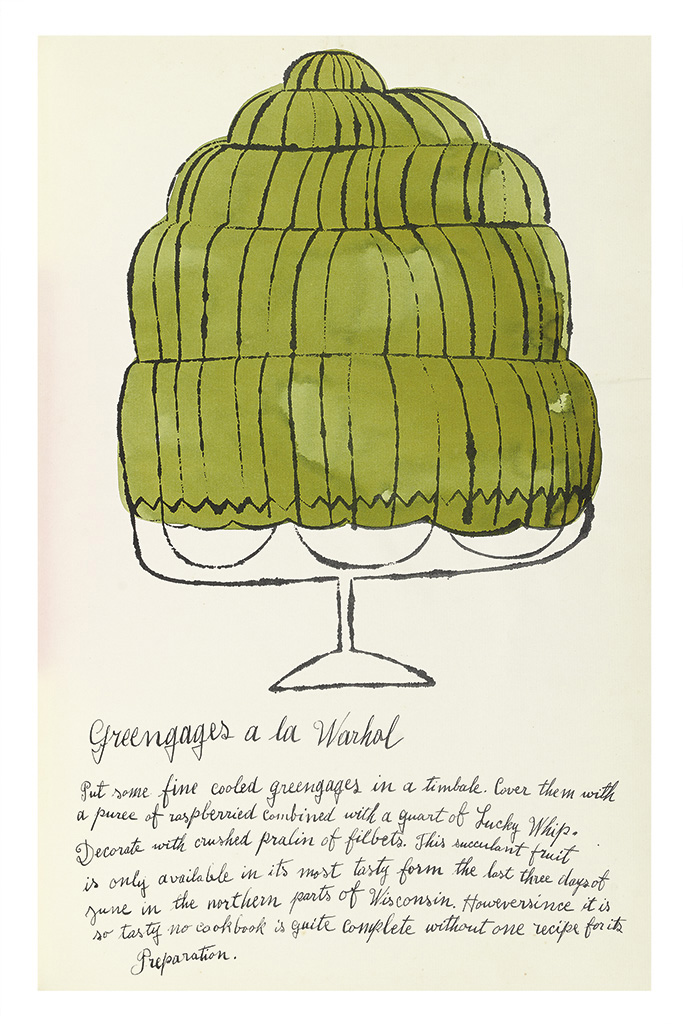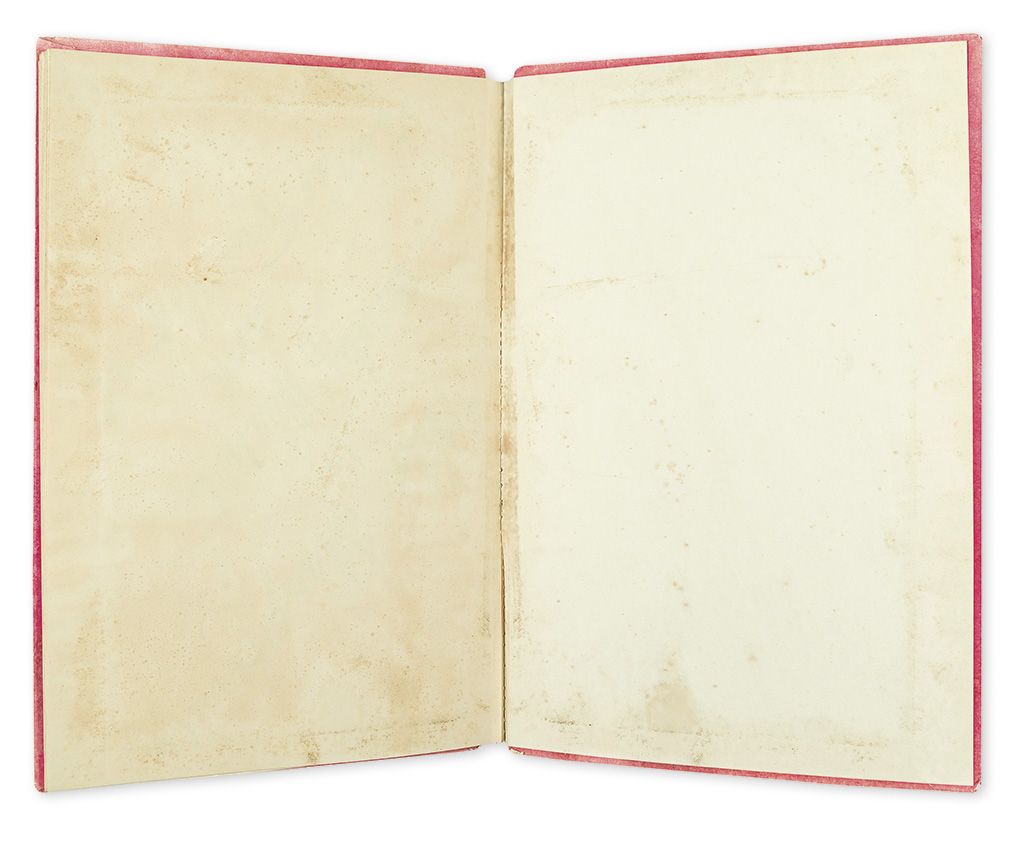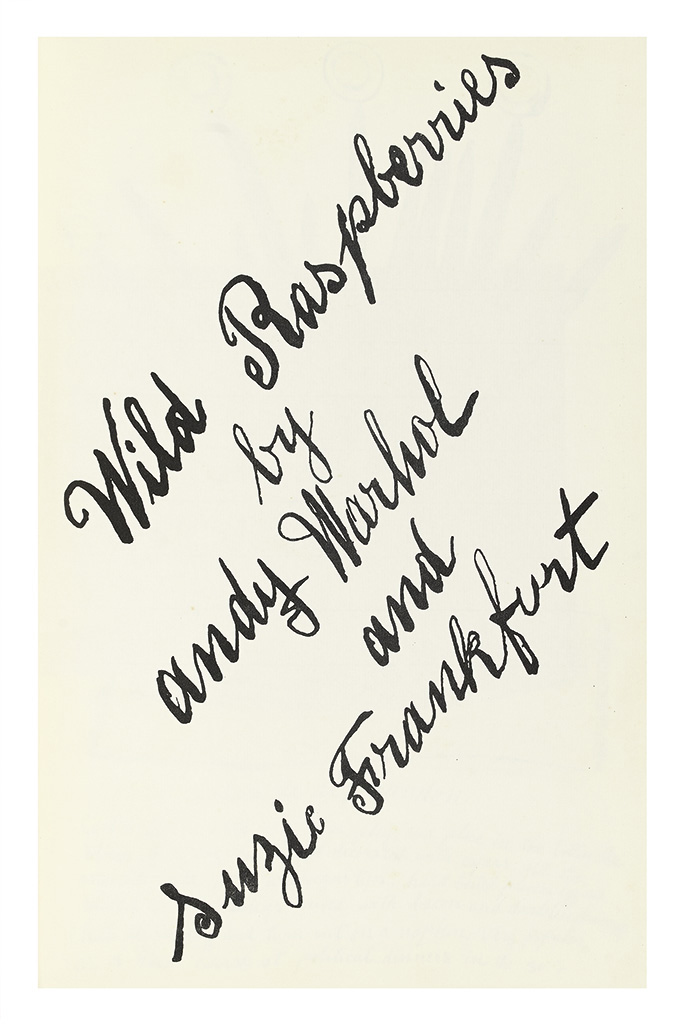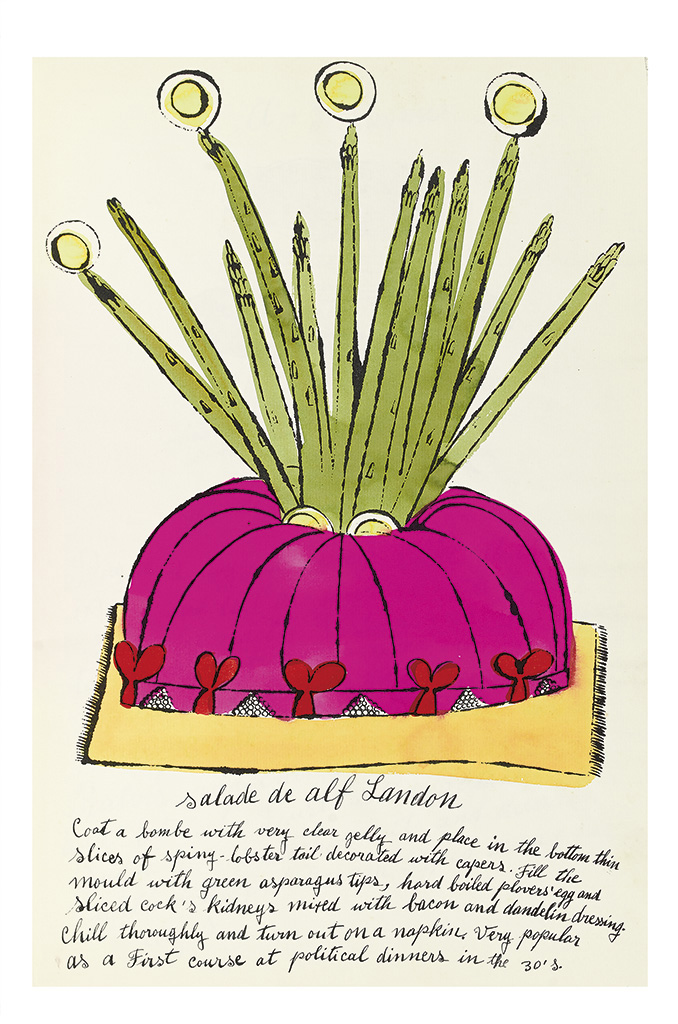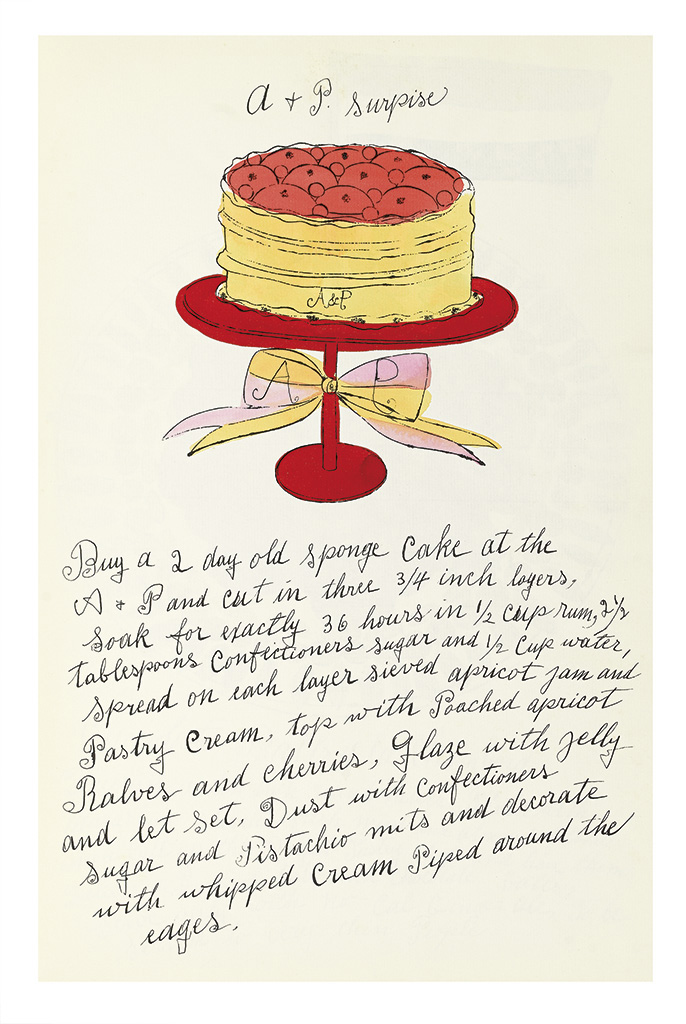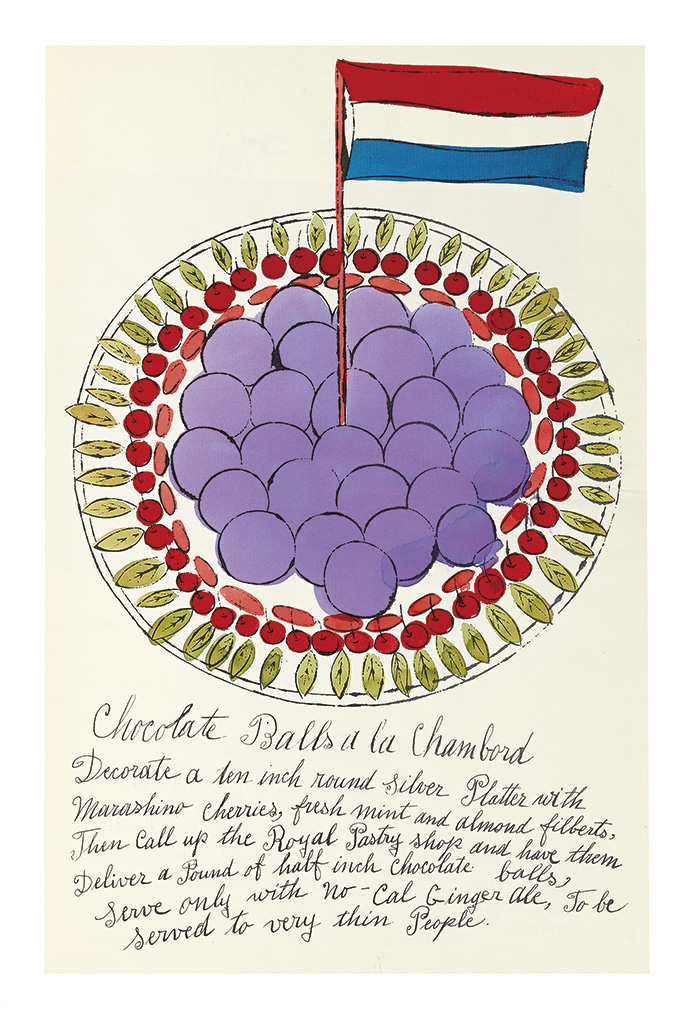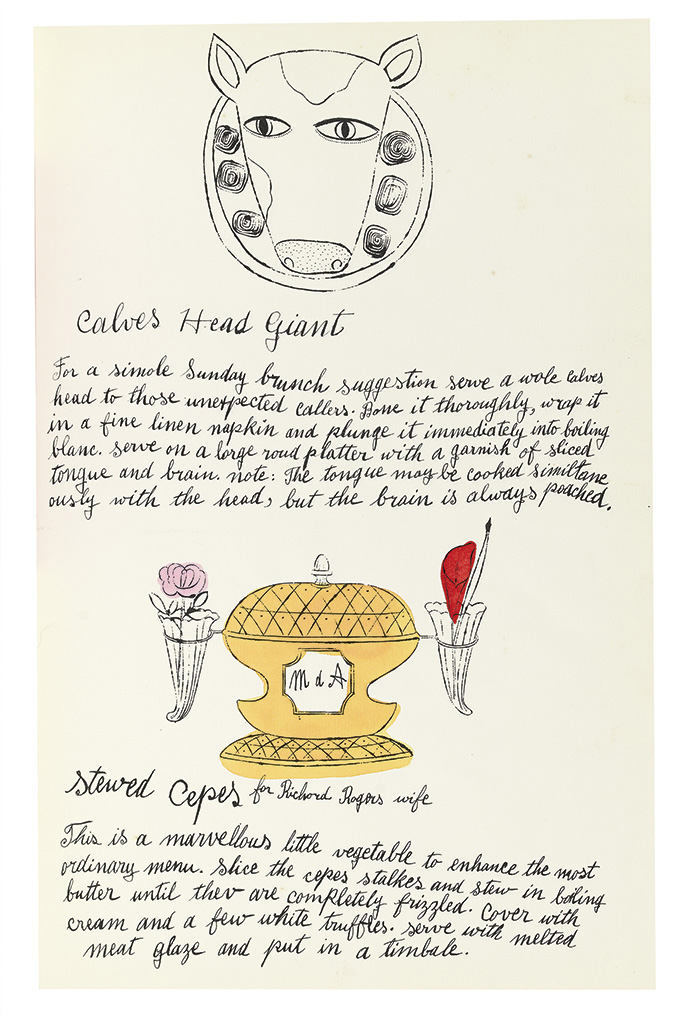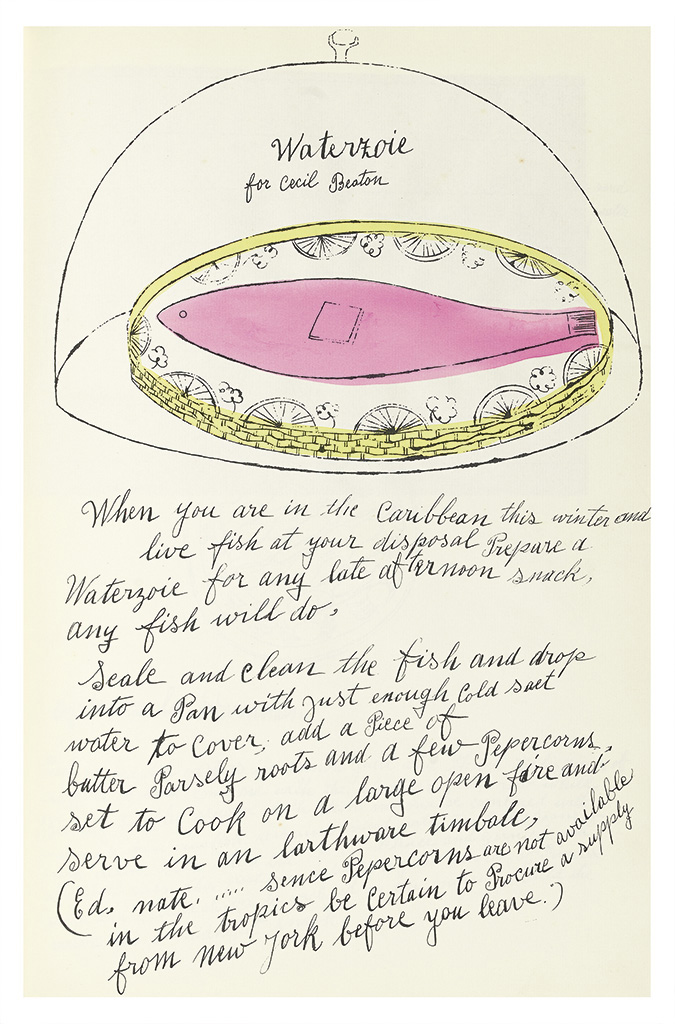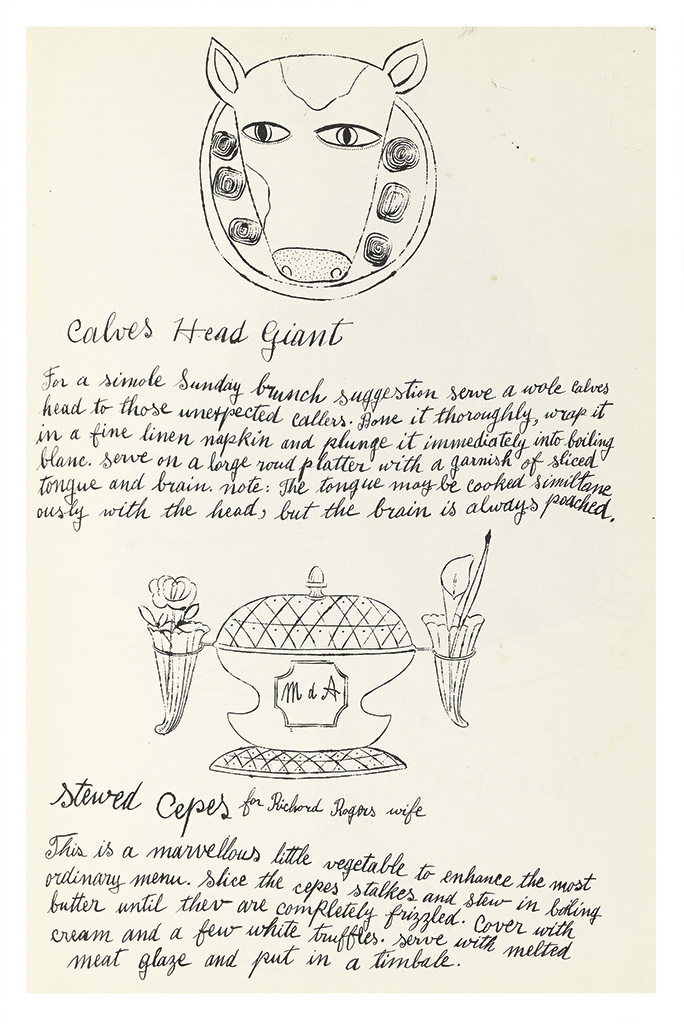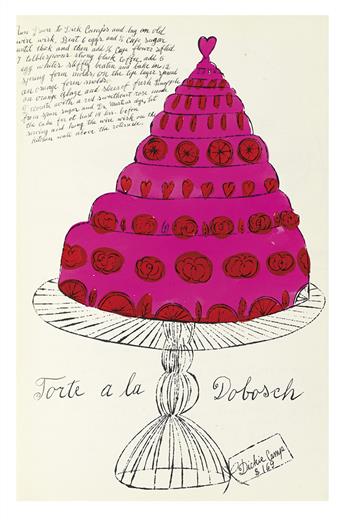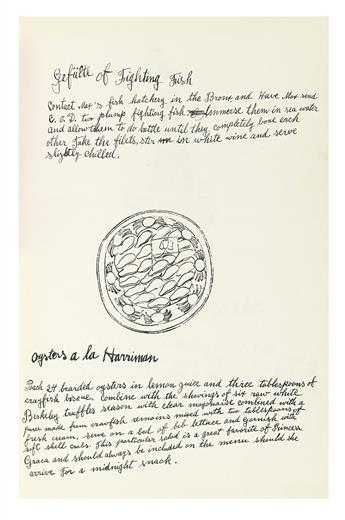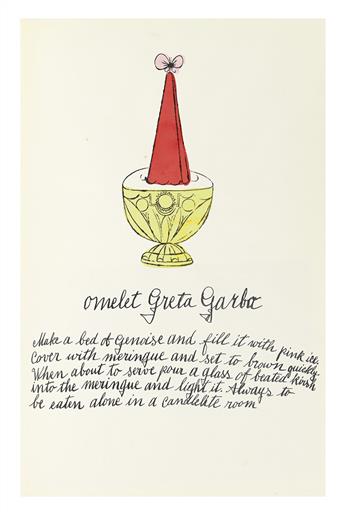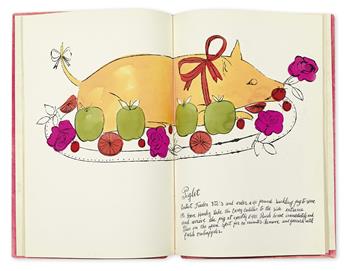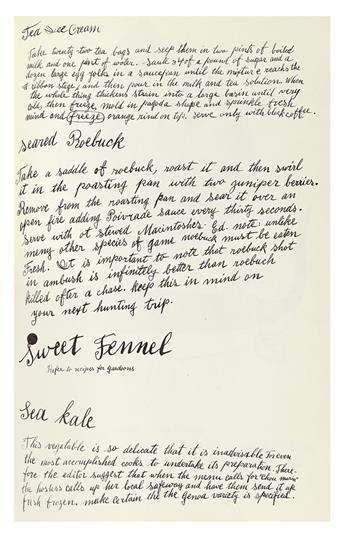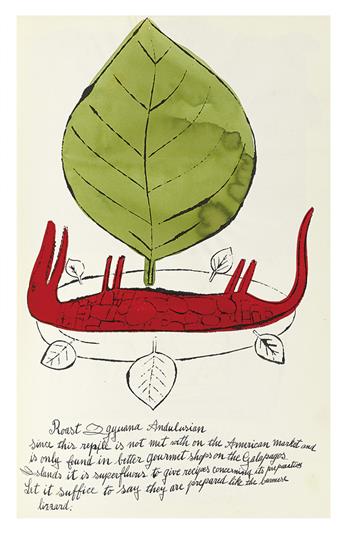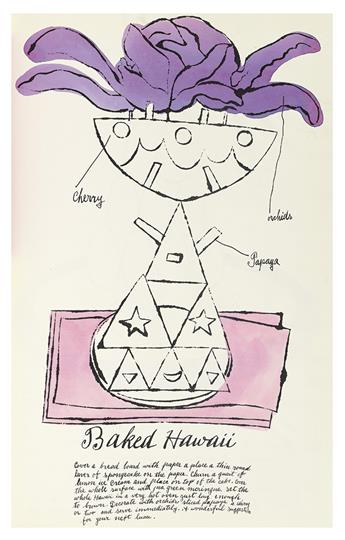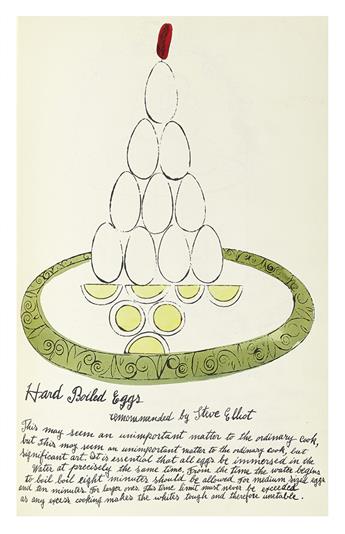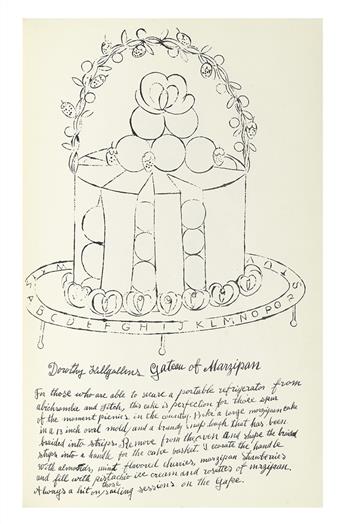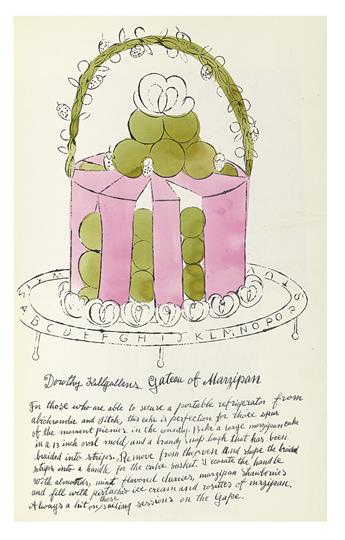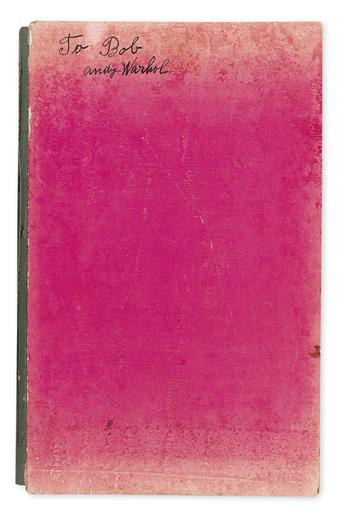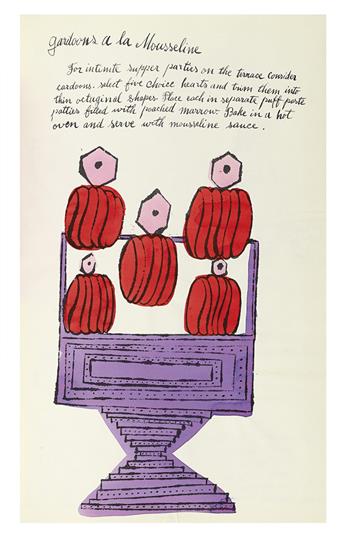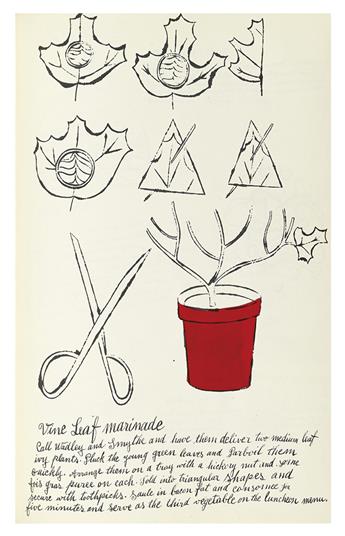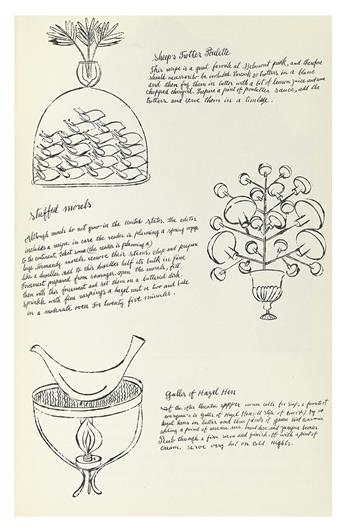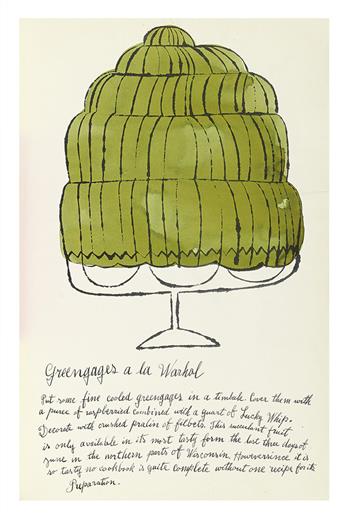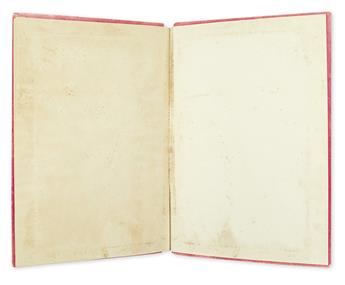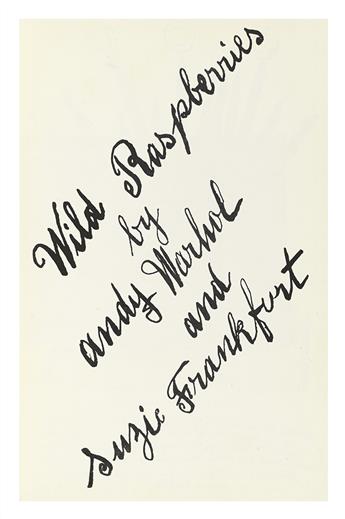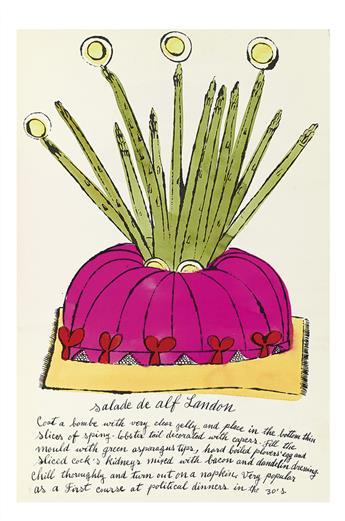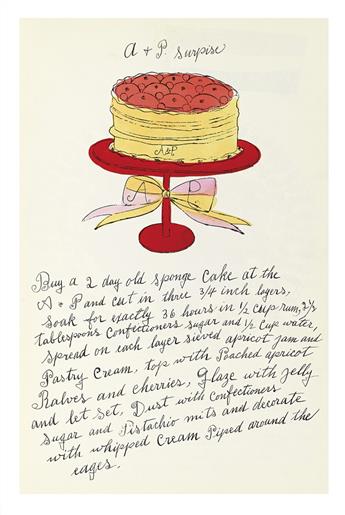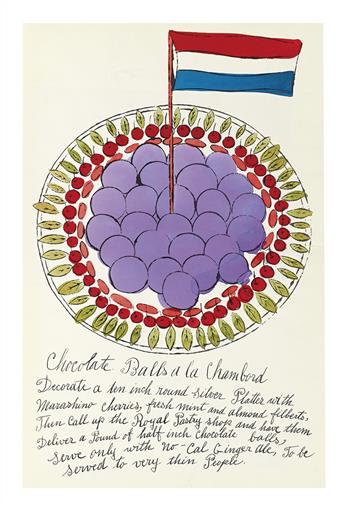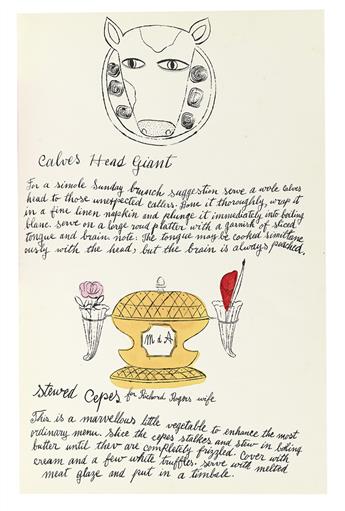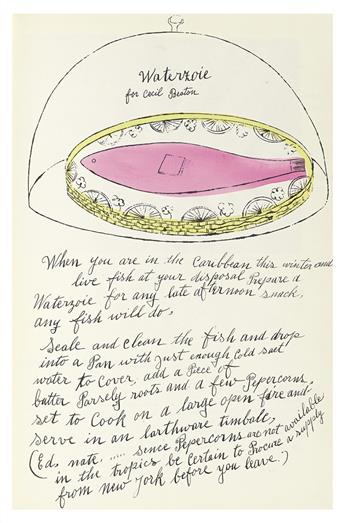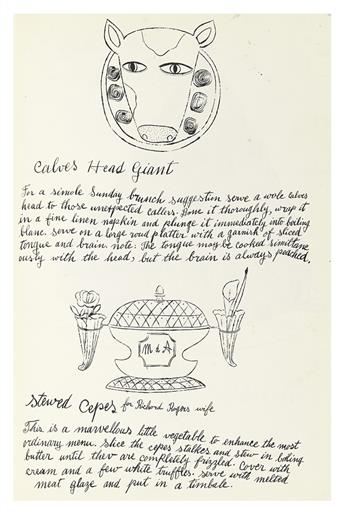Sale 2387 - Lot 369
Unsold
Estimate: $ 30,000 - $ 40,000
WARHOL, ANDY; and Frankfurt, Suzie. Wild Raspberries. Title-page and 21 plates, 15 of which are hand-colored (one is the double-page Suckling Pig), several with hot pink tissue guards. Lettering by Warhol's mother Julia Warhola. 435x280 mm; 17 1/8x11 inches, sheets. Folio, original raspberry colored boards, spine perished as often encountered, boards unevenly discolored and soiled. [New York, 1959]
Additional Details
scarce inscribed and signed copy of wild raspberries with duplicate plates. Normally, 18 pages of lithographs are bound into the book but this copy contains duplicate plates of "Calves Head Giant/Stewed Cepes for Richard Rogers Wife" and 'Dorothy Killgallen's Gateaux of Marzipan," one of each is hand-colored. The front cover is inscribed "to Bob / Andy Warhol" in black ink. In the early 1960s, the Champion Paper Company hired advertising firm Campbell Ewald to launch an a campaign called "Face to Face" where photographers would shoot images of illustrators and illustrators would draw the photographers. Robert Hungerford was the campaign's creative director and commissioned Warhol, along with Gordon Parks and Austin Briggs among others, for the project. Warhol inscribed this copy as a gift of thanks to Hungerford.
It is believed that only about 100 copies were printed of this highly coveted limited edition satirical cookbook created for the mythical Beau Monde restaurant. From the title, a humorous take on Bergman's film Wild Strawberries, to the antiquated cooking terms and over-the-top recipes, the book pokes fun at America's obsession with haute French cuisine. In 1958, Warhol befriended Suzie Frankfurt, the glamorous California wife of an advertising executive. Newly married, her mother had sent her a stack of cookbooks which amused the two friends as they could not figure out the recipes, and the inspiration for "a cookbook for people like us" was born. "Frankfurt concocted the recipes, Warhol did the illustrations, his mother recopied the text, and then some downtown rabbis bound a hundred copies [which were] sold at Bloomingdales"--Kornbluth 164. Feldman & Schellman 126A-143A; Brown, pages 65-70.
It is believed that only about 100 copies were printed of this highly coveted limited edition satirical cookbook created for the mythical Beau Monde restaurant. From the title, a humorous take on Bergman's film Wild Strawberries, to the antiquated cooking terms and over-the-top recipes, the book pokes fun at America's obsession with haute French cuisine. In 1958, Warhol befriended Suzie Frankfurt, the glamorous California wife of an advertising executive. Newly married, her mother had sent her a stack of cookbooks which amused the two friends as they could not figure out the recipes, and the inspiration for "a cookbook for people like us" was born. "Frankfurt concocted the recipes, Warhol did the illustrations, his mother recopied the text, and then some downtown rabbis bound a hundred copies [which were] sold at Bloomingdales"--Kornbluth 164. Feldman & Schellman 126A-143A; Brown, pages 65-70.
Exhibition Hours
Exhibition Hours
Aliquam vulputate ornare congue. Vestibulum maximus, libero in placerat faucibus, risus nisl molestie massa, ut maximus metus lectus vel lorem.



